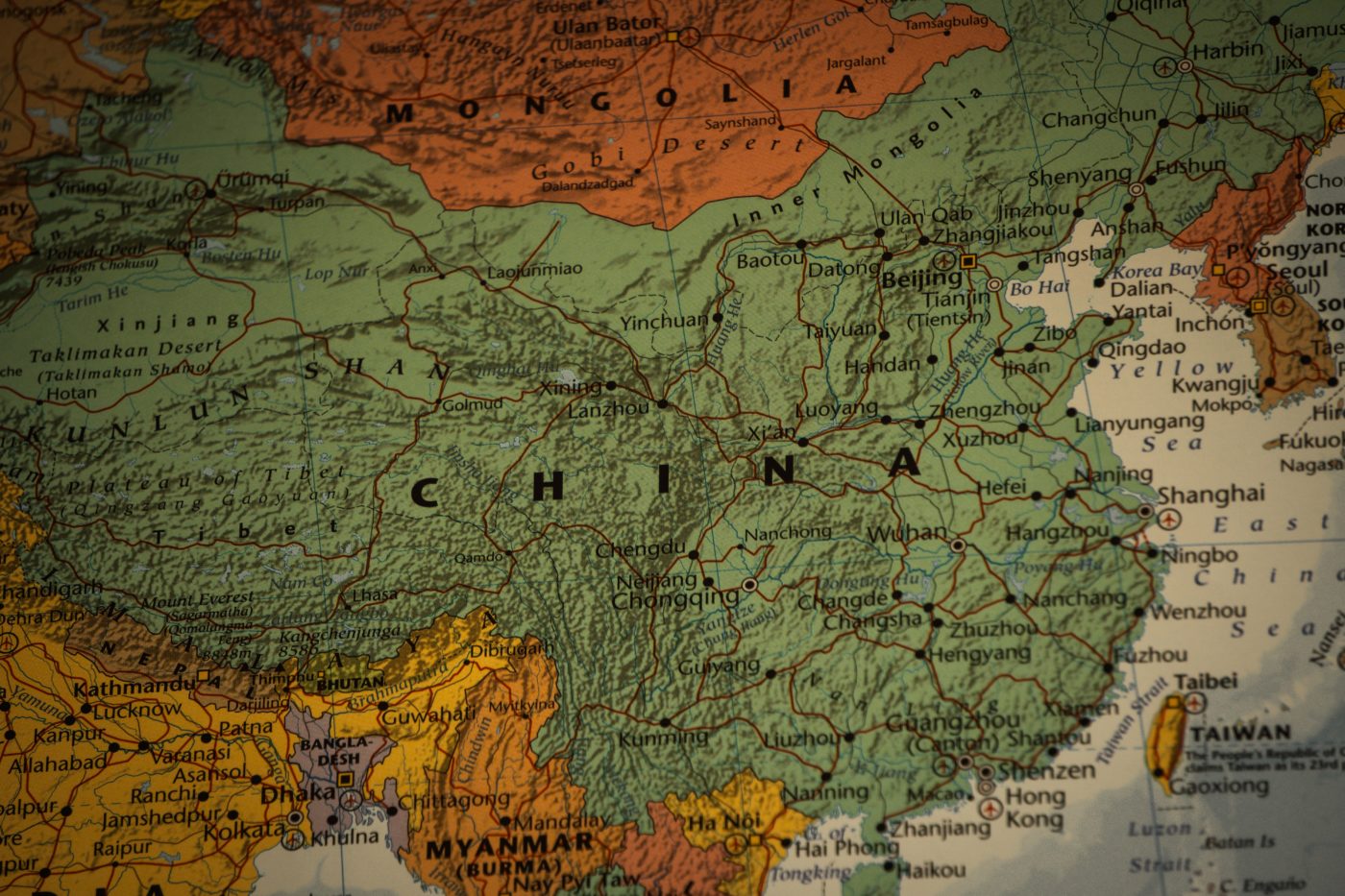
Make Your Choice: Learning from the Chinese Church
Over the last couple decades the underground church in China has served as an inspirational story to many in the West. Despite pervasive persecution, the Chinese church has grown exponentially, in numbers and proportions that are difficult to quantify. So what are some of the catalysts for the rampant underground church?
First, not to nitpick, but rather to offer a clearer picture of the situation in China, the more apt term would be “unregistered,” not underground.
Under President Xi, the Chinese government has tightened its societal tethers, passing legislation and instituting practices that mirror George Orwell’s “Big Brother” from Nineteen Eighty-Four. State-run churches and registered religious entities fall under the purview and discretion of Xi’s regime. Anything opposing Xi’s ideals is met with strong and open hostility from government officials and police and would be broadly called “unregistered.”
Religious freedom, as outlined in the Chinese constitution, stands as little more than “ink on paper,” nominal at best. And the surge in Chinese nationalism has led to a greater and greater enforcement of these ideals in local and national settings. The people want China to be number one; anything that opposes that narrative…
What this means for the unregistered church is that forceful harassment is both legally and culturally encouraged.
Due to the power and resources of big brother (city-wide camera systems, facial recognition, surveillance), Christianity in China faces an increasingly invasive and hostile presence in all settings. The government knows who the believers are and where they are likely meeting. Officials are watching and taking notes.
In 2018 the government instituted “social scores” for all citizens. These scores can be severely affected by something as innocuous as jaywalking or life-defining as faith. Low social scores lead to job loss, travel bans, internet restrictions, fines, and arrests. Government programs incentivize whistleblowing which has perpetuated deep-seated distrust among the Chinese people. These new programs seek to involve communist identities within every facet of people’s lives. For Christians, this creates an obvious conflict as Jesus alone stands as the standard for truth and righteousness.
In China, for many believers the presence of persecution isn’t anything new. It is simply clad in newer and flashier vestments. The church continues to take great strides, adapting and growing under the looming shadows of communist cameras. And while physical persecution might not seem as prevalent (perhaps just better hidden), the threat of becoming a social pariah is overt. Many Christians have been disowned, divorced, and disassociated with because of their faith in Jesus Christ.
But this is something the people expect. From the outset of the Christian explosion in China (1960’s), believers never shied away from preaching the cost of Christianity. “It’s the only free gift that might cost you everything.” Any Christian worth his/her salt knows that surrender to Jesus is an all-or-nothing deal. Jesus doesn’t want a person to build the tower halfway and give up when resources get tight; he doesn’t want his soldiers to raise the white flag in the middle of the battle for fear of their lives (Luke 14:28-33).
Jesus doesn’t want a person to build the tower halfway and give up when resources get tight.
Christian Expectations
Jesus told his people, as did New Testament writings, that persecution would come, but they need not fear it:
“God blesses those who are persecuted because they live for God, for the Kingdom of Heaven is theirs. God bless you when you are mocked and persecuted and lied about because you are my followers. Be happy about it! Be very glad! For a great reward awaits you in heaven. And remember, the ancient prophets were persecuted, too.” (Matt. 5:10-12)
“Look, I am sending you out as sheep among wolves. Be as wary as snakes and harmless as doves. But beware! For you will be handed over to the courts and beaten in synagogues. And you must stand trial before governors and kings because you are my followers.” (Matt. 10:16-18)
“The people of the world will hate you because you belong to me, for they don’t know God who sent me.” (John 15:21)
“We are hunted down, but God never abandons us. We get knocked down, but we get up again and keep going. Through suffering, these bodies of ours constantly share in the death of Jesus so that the life of Jesus may also be seen in our bodies.” (2 Cor. 4:9)
“We sent [Timothy] to strengthen you, to encourage you in your faith, and to keep you from becoming disturbed by the troubles you were going through. But, of course, you know that such troubles are going to happen to us Christians. Even while we were with you, we warned you that troubles would soon come–and they did, as you well know.” (1 Thess. 3:2-4)
“Yes, and everyone who wants to live a godly life in Christ Jesus will suffer persecution.” (2 Tim. 3:12)
“So then, since Christ suffered physical pain, you must arm yourselves with the same attitude he had, and be ready to suffer, too. For if you are willing to suffer for Christ, you have decided to stop sinning.…Dear friends, don’t be surprised at the fiery trials you are going through, as if something strange were happening to you. Instead, be very glad–because these trials will make you partners with Christ in his suffering, and afterward you will have the wonderful joy of sharing his glory when it is displayed to all the world. Be happy if you are insulted for being a Christian, for then the glorious Spirit of God will come upon you.” (1 Peter 4:1, 12-14)
“Don’t be afraid of what you are about to suffer. The Devil will throw some of you into prison and put you to the test. You will be persecuted for ‘ten days.’ Remain faithful even when facing death, and I will give you the crown of life.” (Rev. 2:10)
The presence of persecution in China was and always has been readily apparent, and the remarkable growth of the church in those settings stands as a prodigious testimony to the power of the Holy Spirit and the faithfulness of Chinese Christians. As the expectation of persecution extends to anyone who believes, it seems natural to explore the biblical and practical insights that Western Christians could use as an era of intolerance rises under the guise of social progress, a cultural revolution with an epicenter in the United States.
Solidifying Our Convictions
So as not to beat around the bush, this Western cultural revolution revolves around social issues like LGBTQ+ rights, abortion, feminism, masculinity, and the Black Lives Matter movement. There are a plethora of issues to sort through in all of these movements, some political, some moral, and some theological. This can at times make talking about these issues difficult because not everyone argues from the same plane. So to be clear, when it comes to Jesus Christ, there is right and wrong, and there is a standard for truth; humanity doesn’t get to decide what truth is or change it based on prevailing winds. The church is accountable to biblical standards above all else, regardless of the windfall.
So as culture takes aim at longstanding Christian beliefs and core convictions, it’s important to know where a person stands. God doesn’t deal halfway. It’s his way or the highway, a highway that is wide and has a big ole gate that leads to destruction. When God says that certain people won’t enter the Kingdom of Heaven, it’s best to believe it.
So here is where the line is drawn, a line that countless Chinese Christians have willingly crossed:
“If you want to be my follower you must love me more than [Greek: hate] your own father and mother, wife and children, brothers and sisters–yes, more than your own life. Otherwise, you cannot be my disciple. And you cannot be my disciple if you do not carry your own cross and follow me. But don’t begin until you count the cost… Flavorless salt is good neither for the soil nor for fertilizer. It is thrown away. Anyone who is willing to hear should listen and understand.” (Luke 14:26-28, 35)
God is either the author of life, or he is not. God is the author of sex, or he is not. God is the author of marriage, or he is not. God is the author of families, or he is not. “Choose today whom you will serve” (Josh. 24:15). God has always granted humanity the dignity of choice. It isn’t forced on anyone. Jesus encourages people to count the cost; he wants them to know what’s at stake and to decide for themselves.
His promise is to eternally love and restore anyone who comes to him, to fill them with a peace and joy that surpasses anything humanity could ever attain on its own. He promises to free humanity from guilt and shame, to rid the world of sorrows and sin. The author of good has offered boundless good to anyone who believes, for all time through the most wholesome and fulfilling relationship that could ever be. His promise was fulfilled on a desolate hill outside Jerusalem where he died and took the sins of the world on his own shoulders.
If there’s ever a question about how far he’s willing to go, look at his hands and his feet.
Read his Word where he pours out his heart to his people and tells stories of his continued faith in the midst of egregious adultery. God so loved the world…
Jesus gave his life for each individual, and he simply asks for their devotion in return. He’s not a vindictive pursuer, not an overwhelming suitor; he offers each person a choice, and he promises that it’s worth anything a person would have to give up.
Countless Christians in China chose Jesus, so when the officers came knocking, they weren’t afraid. “[I]f you give up your life for me, you will find true life (Luke 9:24).” They weren’t afraid to give up anything for Jesus Christ. If their spouses left, their parents cut them off, their friends ignored them, the Christians had hope and strength to endure. They were aware of the cost, and they would give anything for the reward of knowing Jesus Christ. They believed what Jesus said; that’s where it all starts.
As the West faces a rising tide, it’s time to choose. The “cancel culture,” public shaming, firings, and deconstruction are all elements of change that pervaded the cultural revolution of China in the late 60’s and 70’s. It pit father against son and mother against daughter. It preceded the dark days that China now spends under heavy and overt persecution. To be prepared for those dark days, a person must choose what he/she believes. It has to start there, and if someone isn’t willing to go all the way, it might as well end there too.
To be prepared for dark days, a person must choose what he/she believes.
Relying on God
If someone is willing to choose Jesus, he/she will know that this entails a relationship with Jesus. It’s not enough to know how to “marry” Jesus; eternal life comes down to whether or not a person is married to Jesus, whether or not he/she has laid down ambition and self-service for the cross of Christ, which is to be carried daily. And whether the West likes it or not, prayer and elements of God’s divine presence are primary indicators of that relationship.
In a hemisphere modeled by machines, technology, science, and innovation, there might be a lack of reliance on the most powerful force in the universe: God.
Doesn’t it seem logical that growth in a relationship with God might occur from intentional conversation with God himself? Perhaps to know what God wants, it might be best to ask? Maybe to hear, it might be best to listen? Maybe to see the Holy Spirit move, it might be best to follow the Spirit’s movements? Maybe to experience the power of the living God, one might actually rely on it?
Prayer is a necessity for spiritual growth. And similarly, it’s not enough to know how to pray; it’s important to be a prayerful person.
What does it look like to be a prayerful person?
It might start with the first conscious intake of breath in the morning, a simple and clear reminder that God allows humanity to be alive, that it was he who breathed life into the lungs of man and continues to supply it to this day. It’s a recognition of the sovereignty of God, a recognition that if God didn’t want a person to wake up, the person wouldn’t wake up. It’s an awareness that God is intentional, that each day and each person is designed by an Almighty Being who ordains each day with his divine purpose.
“God Almighty, I am so grateful to be alive! God, would you have something for me today, something eternal, something divine, something that only an omnipotent God could do through me? Lord, thank you. Reveal your power and presence to me today. Not my will, but yours be done.”
It might continue at the breakfast table, looking out the window as the sun fills the sky, recognizing again that God graciously supplies it all.
“Father in heaven, thank you for providing for me. I thank you for my daily bread, for the blessings of my life, a warm drink in the morning and full cupboards. I thank you for your provision and ask you to sustain me through the day with your strength. May I not rely on this earthly sustenance, but on the bread of life that comes from you. May you supply me with a wellspring of life that overflows into everything I do. Thank you, God, for what you’ve given me, for what I get to see, experience, and enjoy.”
The next opportunity might arise when backing out of the driveway or traveling to work.
“God, I don’t know these people, but they clearly need you. I intercede on their behalf. May you grant someone the boldness to proclaim or remind them of your Good News. May you in your good pleasure fill them with an understanding of your love.”
Prayer can happen in the five minutes waiting for an email or at the 30-second red light. It’s not about the quantity or the time; it’s about being full of prayer, prayerful, ready and willing to respond to God, seeking his will whenever the opportunity arises. Prayer is a pathway to the power and presence of God, a clear indicator of where a person seeks direction and strength. It’s a necessary element for the Christian walk and a catalyst for endurance in the face of persecution.
In a hemisphere modeled by machines, technology, science, and innovation, there might be a lack of reliance on the most powerful force in the universe: God.
Connecting with People
A final element of church growth and endurance in China, which accompanies genuine belief and connection with God, is connection with people. Growth requires other people to join. “How will they know unless someone tells them?” (Rom. 10:14).
To grow, the church must be connected to other people. To endure, it must rely on the Spirit of God and the body he has provided. To be joined together in a battle with eternal implications, people must know their leader and be willing to follow his commands and respond to his movements. To survive the battle, they must have a source of strength and be close to it, reliant on it.
None of these insights seems original because they’re not; they’re biblical.
Colossians 4:2-6 says,
“Devote yourselves to prayer with an alert mind and a thankful heart. Don’t forget to pray for us, too, that God will give us many opportunities to preach about his secret plan–that Christ is also for you Gentiles. That is why I am here in chains. Pray that I will proclaim this message as clearly as I should. Live wisely among those who are not Christians, and make the most of every opportunity. Let your conversation be gracious and effective so that you will have the right answer for everyone.”
To experience the amazing growth and strength of the early church, it might be best to follow the principles and values of the early church, which have been passed down from God as a promise through his holy Word. From this promise, the church can have the confidence and power that not even the gates of hell will overcome (Matt. 16:18).
As persecution rises, may it be an opportunity for the church to explode with growth, for the Good News of Jesus Christ to shine through a cover of darkness and confusion. May Christians be wholeheartedly committed to the cause of Christ. May they pray without ceasing, calling on the name of the Sovereign God, and may they be emboldened to seek and save that which was lost.
As James 1:2-8 puts it,
“Dear brothers and sisters, whenever trouble comes your way, let it be an opportunity for joy. For when your faith is tested, your endurance has a chance to grow. So let it grow, for when your endurance is fully developed, you will be strong in character and ready for anything. If you need wisdom–if you want to know what God wants you to do–ask him, and he will gladly tell you. He will not resent your asking. But when you ask him, be sure that you really expect him to answer, for a doubtful mind is as unsettled as a wave of the sea that is driven and tossed by the wind. People like that should not expect to receive anything from the Lord. They can’t make up their minds. They waver back and forth in everything they do…”








